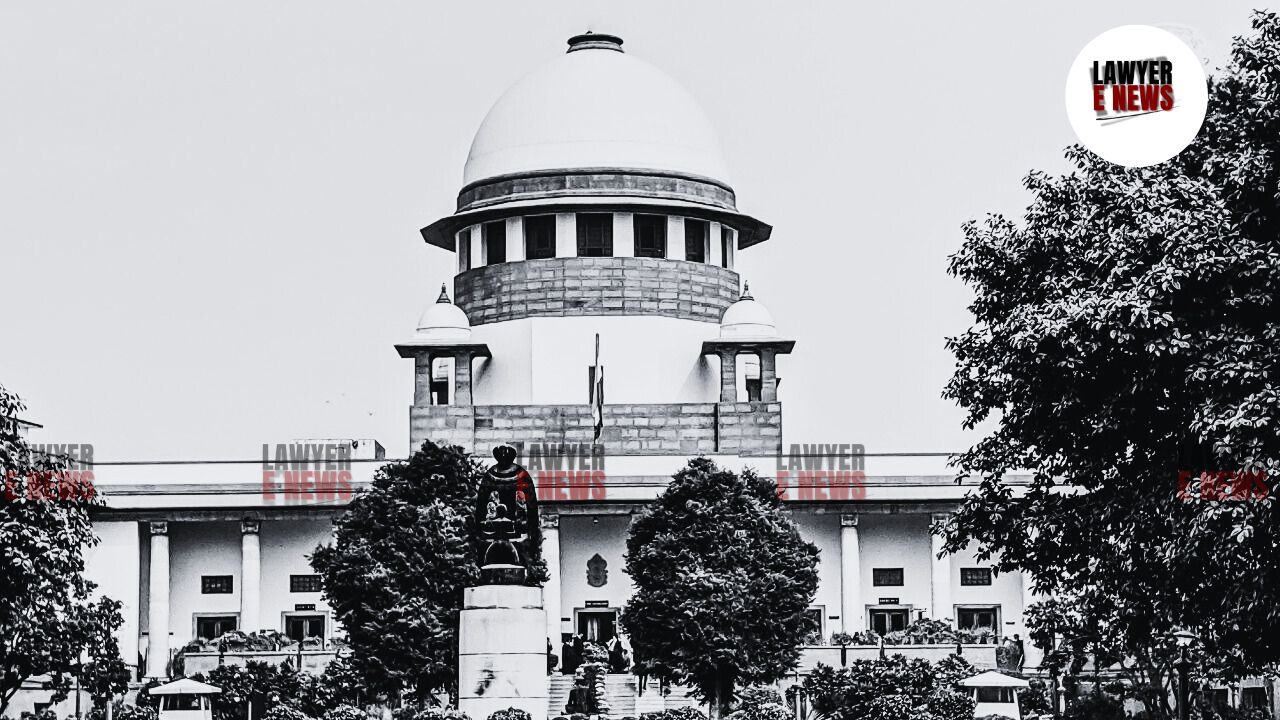-
by Admin
15 February 2026 5:35 AM



The Supreme Court has upheld the administrative discretion of jail authorities to transfer prisoners for security reasons under Section 29 of the Prisoners Act, 1900. The court restored an intra-State transfer order of a life convict, quashing the Jharkhand High Court’s decision, which had set it aside. The apex court ruled that prison administration decisions aimed at ensuring safety and preventing gang violence cannot be interfered with unless arbitrary or contrary to law.
“Inspector General of Prisons Has Discretion to Transfer Convicts to Prevent Gang Wars”
On January 17, 2025, the Supreme Court delivered its judgment in the case of The State of Jharkhand & Others v. Vikash Tiwary @ Bikash Nath, restoring the transfer of a life convict, Vikash Tiwary, from Lok Nayak Jai Prakash Narayan Central Jail, Hazaribagh, to Central Jail, Dumka. The court, comprising Justices J.B. Pardiwala and R. Mahadevan, affirmed the powers of the Inspector General of Prisons under Section 29 of the Prisoners Act and Rule 770(B) of the Jharkhand Jail Manual to transfer prisoners on administrative grounds.
In a significant ruling, the Supreme Court emphasized that prison administration has the authority to transfer convicts to prevent gang-related violence and ensure security within jails. The case arose from an appeal filed by the State of Jharkhand challenging the High Court’s decision to quash the transfer of Vikash Tiwary, a life convict and notorious gangster. Upholding the validity of the transfer order, the court observed, “The transfer of prisoners from one jail to another is not a matter of routine but must be based on rational and sufficient grounds to ensure security and discipline.”
Vikash Tiwary, a convicted gangster serving a life sentence for murder and implicated in several criminal cases, was transferred by the Inspector General of Prisons from Hazaribagh Central Jail to Dumka Central Jail via an order dated May 17, 2023. The transfer was prompted by credible concerns of gang war between Tiwary and another notorious gangster, Aman Singh, lodged in the same jail. The jail authorities highlighted the insufficient resources to maintain strict vigilance over both prisoners and expressed fears of violence erupting within the prison.
Tiwary challenged the transfer in the Jharkhand High Court, citing alleged violations of natural justice and his right to defend himself in other pending cases. The High Court, relying on previous decisions involving undertrial prisoners, quashed the transfer order. Aggrieved, the State of Jharkhand approached the Supreme Court.
The Supreme Court analyzed Section 29 of the Prisoners Act, 1900, which allows the State Government and the Inspector General of Prisons to transfer prisoners for administrative reasons, including security concerns. Rule 770(B) of the Jharkhand Jail Manual also empowers the Inspector General to transfer prisoners on sufficient grounds.
The court observed, “The Inspector General of Prisons has the discretion to transfer prisoners from one jail to another, especially when such transfer is essential to maintain security and discipline. This administrative decision is well within the statutory framework and cannot be interfered with unless it is arbitrary or mala fide.”
The jail administration cited credible intelligence of potential gang wars between Tiwary and Aman Singh. The transfer was aimed at neutralizing this threat and ensuring the safety of all prisoners. The court remarked, “Decisions to transfer prisoners should focus on security, safety, and maintaining discipline within jails. Preventing gang-related violence is paramount.”
The court acknowledged the respondent’s argument that prisoners retain fundamental rights under Article 21 of the Constitution, including the right to safety. However, it clarified that these rights are not absolute and must align with the requirements of prison administration. “The transfer was a preventive measure to safeguard the respondent’s life and ensure the overall security of the prison,” the court held.
The court reiterated that decisions regarding the place of detention fall under the domain of prison authorities and should not be interfered with unless arbitrary or contrary to law. “The High Court erred in quashing the transfer order, as it was based on concrete security concerns and issued within the statutory framework,” the court observed.
The Supreme Court restored the Inspector General’s transfer order, emphasizing the need for administrative discretion in managing prisons. It ruled that the High Court’s reliance on precedents involving undertrial prisoners was misplaced, as Tiwary is a convicted prisoner serving a life sentence.
The court also dismissed Tiwary’s reliance on a favorable character certificate issued by the jail superintendent after the transfer order. It noted that the same superintendent had earlier raised concerns about gang war threats posed by Tiwary and Aman Singh.
In its judgment, the Supreme Court emphasized the need for states to implement the Model Prison Manual, 2016, to standardize prison administration and ensure prisoner welfare. The court directed the State of Jharkhand to expedite the formulation of its Jail Manual in line with the Model Prison Manual, 2016. It also stressed that prison administration must prioritize security, rehabilitation, and compliance with fundamental rights.
The court observed, “Prisoners retain the right to be treated with dignity, but this right must coexist with measures to ensure prison security and public safety.”
The Supreme Court’s decision underscores the balance between the fundamental rights of prisoners and the administrative responsibilities of jail authorities. It reaffirmed the importance of security and discipline in prisons, while also calling for systemic reforms through the implementation of the Model Prison Manual. By restoring the transfer order, the court highlighted the necessity of administrative discretion in dealing with high-risk prisoners.
Date of Decision: January 17, 2025
